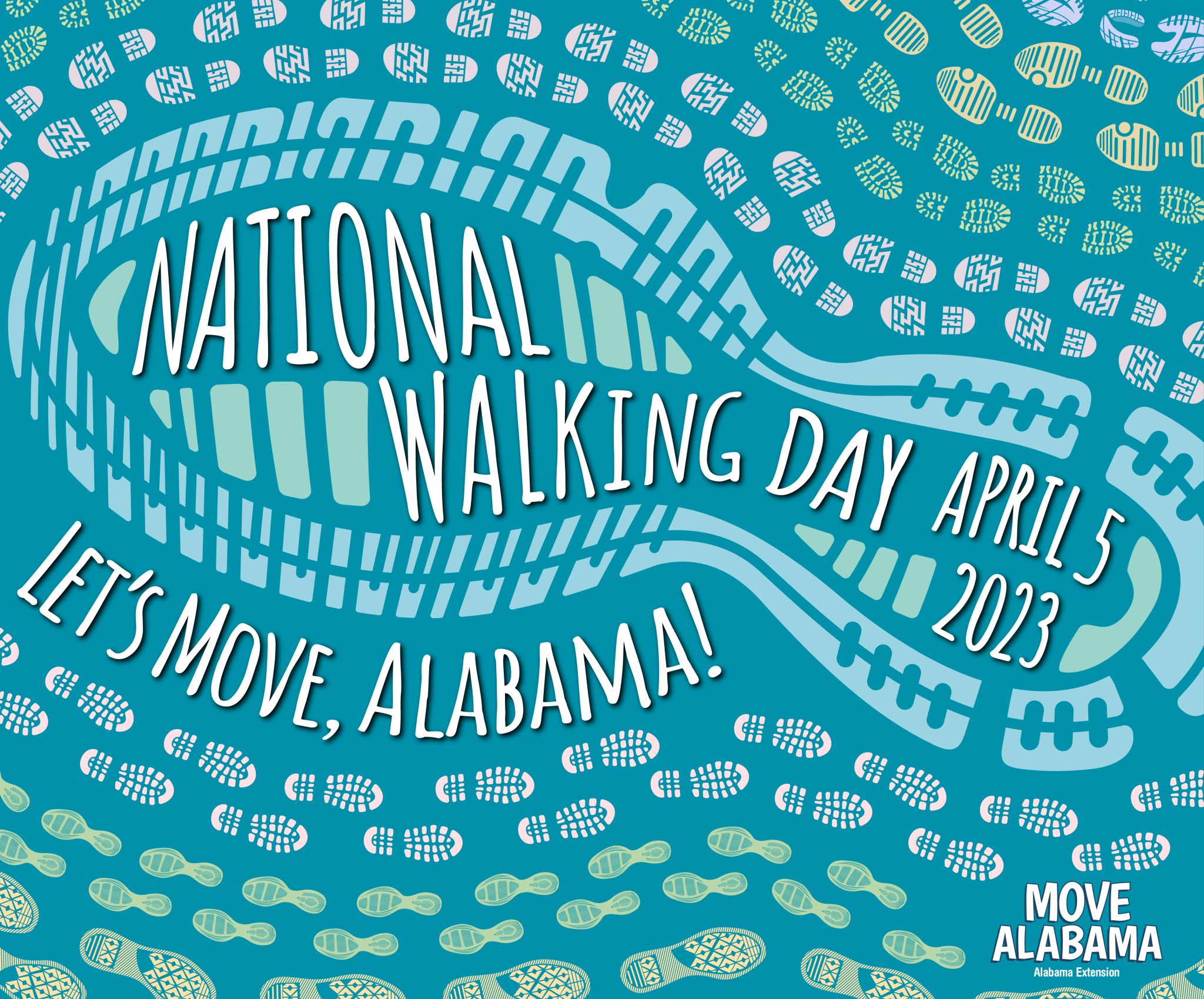Home & Family

AUBURN UNIVERSITY, Ala. — Spring is here and it is time to get outside and get in motion. The first Wednesday of every April is National Walking Day, and the Alabama Cooperative Extension System is here to help everyone put their shoes on the pavement and get moving.
Move Alabama
In conjunction with National Walking Day, two Alabama Extension programs–the Supplemental Nutrition Assistance Program-Education (SNAP-Ed) and the Expanded Food and Nutrition Education Program (EFNEP)–are midway through a joint, statewide program called “Move Alabama.” It is a community physical-activity challenge that encourages Alabamians to exercise with family, friends and neighbors.
“National walking day is a great way to become more mindful of how you can incorporate simple movements like walking on your lunch break or even while you wait for your kids at their extra-curricular activities,” said Erin Reznicek, an Alabama Extension family and consumer sciences specialist. “Move Alabama promotes the same messages—changing simple behaviors that encourage movement all day long.”
Move Alabama runs through April 30. Participants can complete 25 challenges for the chance to win prizes. Challenges include a variety of simple activities to complete individually or with family and friends. Some challenges encourage participants to visit local parks, trails and downtown shopping areas. This encourages the use of free local physical activity in their community.
Challenge coordinators created a public Move Alabama Facebook group to connect all participants to learn about nutrition and staying active. The Facebook group also allows those in the challenge to update others on their progress.
Move Alabama participants can pick up a challenge flyer from participating local Extension offices or download one from the Move Alabama Facebook group. After completing 20 or more challenges, individuals can take a photo of their complete flyer and email it to movealabama@auburn.edu for entry into the prize pool. The deadline to send photos is May 3.
Major Health Benefits
A leisurely walk around the block can provide a refreshing change of scenery as well as offer numerous health advantages. Incorporating a walking habit can lower the risk of developing chronic illnesses, enhance cholesterol levels, decrease blood pressure, promote better sleep and boost energy levels.
“One of the best ways to jump-start a new routine and improve your overall health is by going for a walk,” Reznicek said. “The immediate benefits to a single bout of exercise, such as a brisk walk, include improved mood, reduced anxiety symptoms and improved cognition for the task performed that day.”
All ages benefit from walking. According to the Arthritis Foundation, walking improves circulation, strengthens muscles, supports joints and lowers Alzheimer’s risk—which is especially important to older adults.
Walking is also an easy way to get the recommended physical activity needed each day, which varies by age. According to the Physical Activity Guidelines for Americans, children ages 6 through 17 need 60 minutes of physical activity, while adults need at least 30 minutes every day.
How Many Steps Are Needed
The USDA recommends that people have a target of taking 10,000 steps each day. While that goal may not be feasible for beginners, don’t feel discouraged. Take time to build up to these recommendations by setting smaller, bite-sized goals.
“Try walking in 10-minute intervals a couple of times each day to meet the 30-minute or 10,000-step goal,” Reznicek said. “Eventually, as confidence and physical function build, you may feel the ability to walk longer or try other forms of exercise.”
Making Time to Walk
Many people have busy lives and it may feel challenging to make time for a stroll. However, it doesn’t have to be a hassle. There are various simple ways individuals can integrate additional steps into their daily routines.
- Park further away from the entrance to a workplace, school or grocery store.
- Walk with friends in the neighborhood or take a walk while chatting on the phone.
- Suggest a walking meeting at work rather than sitting in an office.
- Take the stairs instead of riding in an elevator.
- Get outside with the family or your furry friend for an after-dinner walk.
More Information
For more information about what SNAP-Ed does to improve Alabamians’ quality of life, visit Live Well Alabama on Facebook, Instagram, Twitter and Pinterest.

